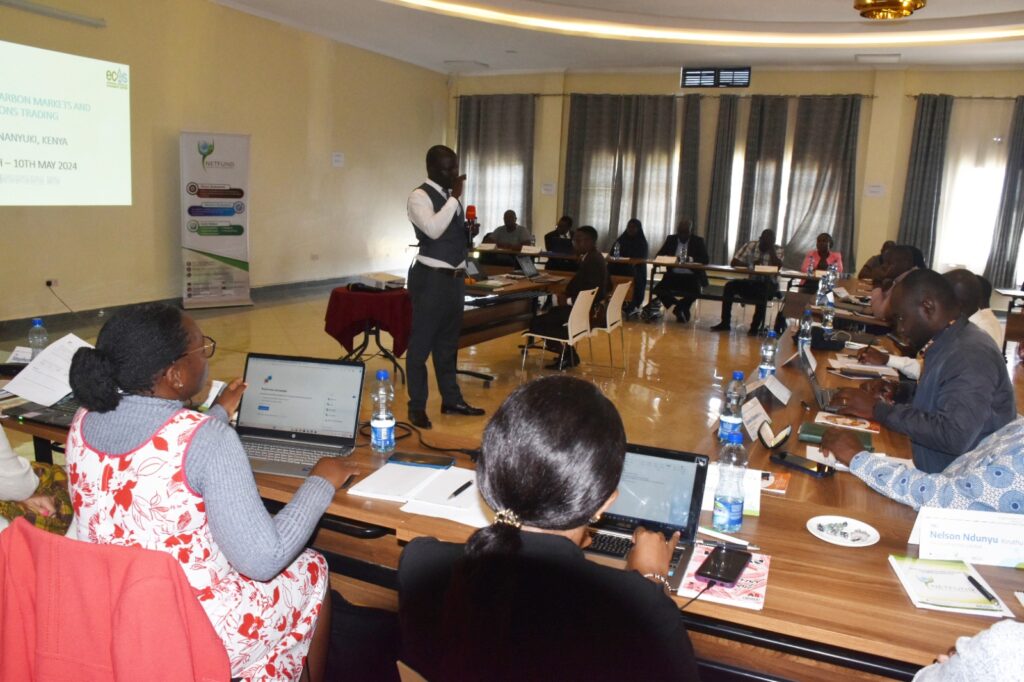
INTERNATIONAL TRAINING ON ADDRESSING CORRUPTION IN THE TENURE OF LAND, FISHERIES AND FORESTS
COURSE BACKGROUND
Corruption in the governance of land, fisheries, and forests severely impacts the livelihoods and food security of vulnerable communities. These corrupt practices undermine sustainable resource management, distort markets, and deepen inequality. Many stakeholders lack the knowledge and tools to effectively identify, assess, and combat this pervasive issue.
ECAS Institute recognizes that addressing corruption is fundamental to achieving equitable and sustainable natural resource governance. We aim to empower “change agents” with practical options and tools to tackle corruption in the tenure sector. This course directly supports efforts to create more transparent and accountable systems.
This training is designed to provide a comprehensive overview of corrupt practices, their drivers, and their impacts on society and the environment. Participants will learn about assessment tools, anti-corruption measures, and the roles of various actors, including states, organizations, and citizens. By strengthening capacities in this critical area, ECAS seeks to foster good governance and protect vital natural resources.
COURSE OBJECTIVES OF THE TRAINING
Upon completion of this training, participants will be able to:
- Identify the most common forms of corruption in the tenure of land, fisheries, and forests.
- Analyze the drivers and impact of corruption on the economy, society, and environment.
- Utilize tools to assess corruption within tenure systems.
- Describe examples of effective anti-corruption measures.
- Understand the roles of UN agencies, governments, CSOs, the private sector, and the media in tackling corruption.
WHAT YOU WILL LEARN
This course provides an overview of corrupt practices in the tenure sector. It analyzes the drivers and impact of corruption on the livelihoods and food security of poor and vulnerable people. It also introduces a series of options and tools that key players, including states, organizations, and citizens can utilize to identify, assess, and tackle corruption. You will learn:
- Most common forms of corruption in the tenure of land, fisheries, and forests.
- Drivers and impact of corruption on economy, society and environment.
- Tools to assess corruption.
- Examples of anti-corruption measures.
- Roles of UN agencies, governments, CSOs, private sector and media in tackling corruption.
DURATION AND PROGRAM
This is a structured training course, consisting of four lessons designed to provide comprehensive insights and practical tools for addressing corruption in the tenure sector. The program will combine expert analysis with case studies, discussions, and practical exercises. The detailed program schedule, including specific session timings and opportunities for interactive engagement, will be communicated prior to the training commencement.
TARGET PARTICIPANTS
The curriculum primarily addresses “change agents” – i.e. people who can have a direct impact by introducing changes in how tenure is governed. They include:
- National policy makers and administrators.
- Surveyors.
- Trainers.
- Legal support providers.
- Civil society and non-governmental organizations.
- Advocacy, control and monitoring professionals.
TRAINING MODULES
The course consists of four comprehensive lessons, guiding participants through understanding and tackling corruption in the governance of natural resource tenure:
| No | Module | Details | |
| 1. | Corruption in the Tenure of Natural Resources |
This module provides a foundational understanding of what corruption entails in the land, fisheries, and forests sectors, exploring its various forms and underlying causes.
|
|
| 2. | Tackling Corruption |
This module introduces a range of options and tools that various stakeholders, including states, organizations, and citizens, can utilize to identify, assess, and begin to tackle corruption.
|
|
| 3. | Prevention and Mitigation Strategies in Tenure Governance |
This module delves into proactive measures and systemic approaches designed to prevent corruption from occurring or to mitigate its effects within tenure systems.
|
|
| 4. | Enhancing Transparency, Accountability, and Citizen Engagement |
This module explores advanced strategies and tools focused on building greater openness and accountability in tenure governance, with a strong emphasis on the role of citizens and technology.
|
|
TRAINING STYLE
The modules will be taught through PowerPoint presentations, and lectures and will include a case study/field visit, breakout sessions, case studies and other interactive discussion components.
The course will also include a few guest speakers, both in person and via Zoom and other online learning platforms for overseas speakers. This provides useful real-world insights alongside the more theoretical aspects of the course.
The conference faculty shall consist of experienced decision makers, as well as practitioners and representatives from established educational and research institutions active around climate change, engineering and international development. Throughout the course, theoretical presentation of concepts will be moderated and more group discussions and plenary engagements will be optimized. PowerPoint presentations will be made by facilitators and resource persons, to highlight key concepts before embarking on group work.
GENERAL NOTES
- Training manuals and additional reference materials are provided to the participants.
- Upon successful completion of this course, participants will be issued with a certificate.
- We can also do this as a tailor-made course to meet organization-wide needs. Contact us to find out more: info@ecasiafrica.org.
- Payment should be sent to our bank account before the start of training and proof of payment sent to: info@ecasiafrica.org.
ABOUT ECAS INSTITUTE
The ECAS Institute designs and delivers independent and targeted training, research, and consulting services. Our work focusses on climate change and resilience building, carbon markets, renewable energy, nature-based solution, biodiversity conservation, agriculture and food systems, We are located in Nairobi Kenya and work across the African region. We have implemented training and research assignments in Kenya, Tanzania, Uganda, South Sudan, Somalia, Malawi, Rwanda, Congo, and South Africa. Globally, we have supported our partners from the UK, Denmark, Italy, Sweden, Germany, and USA.

